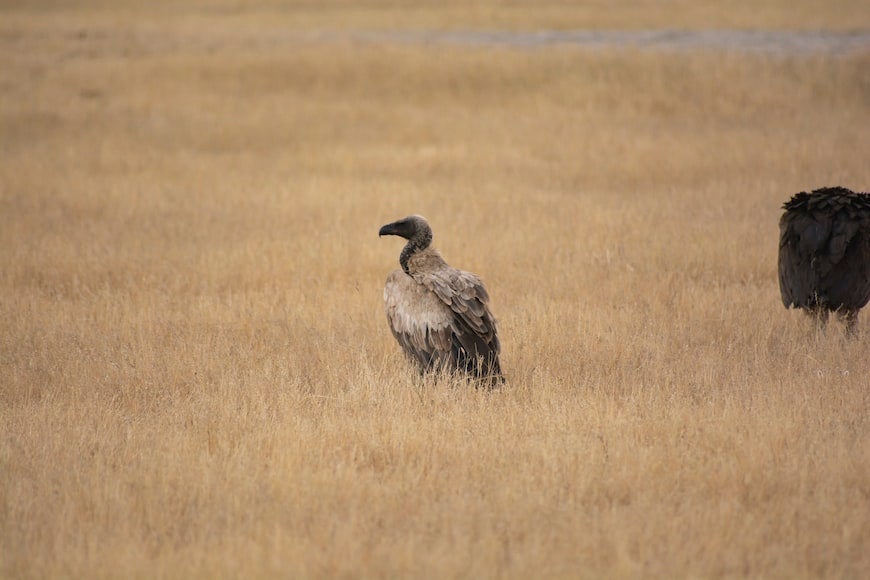Vultures poisoned in Botswana’s Chobe National Park
Heads, feet and organs were harvested from the birds, leading authorities to believe they were sold for medicinal purposes

By Boniface Keakabetse for Okavango Express
Botswana’s Department of Wildlife and National Parks (DWNP) has confirmed the discovery of 50 poisoned white-backed vultures at CH1 in the northern Chobe district.
CH1 is a community concession managed by Chobe Enclave Conservation Trust (CECT). The vultures were discovered by DWNP officers on August 9 along the western boundary of CH1 and Chobe National Park. The incident happened less than 20 metres off a well-used track.
Principal Wildlife Biologist at Kasane DWNP, Letlhogonolo Phologolo, confirmed the grim discovery to The Okavango Express.
Phologolo explained that 50 vultures appear to have died after feeding on poached Buffalo carcass laced with poison.
“We received a report on Monday and went to investigate on Tuesday. We found 50 white-backed vultures dead, and on further investigation we discovered the carcass of a buffalo. The buffalo carcass was missing a thigh and the tail which appeared to have been severed off. We concluded that someone killed the buffalo and laced it with poison to bait the vultures.”
Phologolo explained that even more surprising was the discovery that some of the dead vultures had heads, feet and internal organs removed. He added that their suspicion is that the organs were harvested for medicinal use.
“The organs were neatly removed using a knife. This is very uncommon in Botswana,” he added.
In a similar incident, South African publication, City Press has reported that over 100 vultures and a hyena died after feeding on a buffalo carcass in Kruger National Park, South Africa. The incident has also been linked to poachers who use poison to kill vultures to resell their products to traditional healers.
Although the connection of the two incidents has not been proven, it adds to growing conservation concerns about the use of vulture products for medicinal purposes or Muthi, a term used in reference to the practice in Southern Africa.
Poniso Shamukuni, CECT Chairman, told The Okavango Express that although he has not yet been officially informed about the incident, it is unfortunate to lose such a high number of endangered vultures.
“Vultures are important for the ecological balance of nature. To lose such a high number especially at the time we are in a recovery phase from covid-19 is sad.”
According to information on Birdlife Botswana website, white-backed vultures are classified as critically endangered. African vulture populations have drastically plummeted over the last 30 years.
This article is reproduced here as part of the African Conservation Journalism Programme, funded in Angola, Botswana, Mozambique, and Zimbabwe by USAID’s VukaNow: Activity. Implemented by the international conservation organization Space for Giants, it aims to expand the reach of conservation and environmental journalism in Africa, and bring more African voices into the international conservation debate. Read the original story here.

Join our commenting forum
Join thought-provoking conversations, follow other Independent readers and see their replies